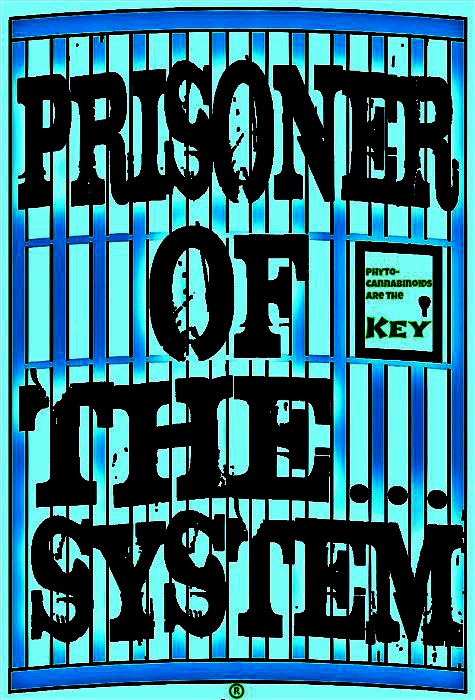2009 Oct;57(13):1374-85. doi: 10.1002/glia.20856.
Amphiregulin is a factor for resistance of glioma cells to cannabinoid-induced apoptosis.
Lorente M1, Carracedo A, Torres S, Natali F, Egia A, Hernández-Tiedra S, Salazar M, Blázquez C, Guzmán M, Velasco G.
Abstract
 Gliomas, one of the most malignant forms of cancer, exhibit high resistance to conventional therapies. Identification of the molecular mechanisms responsible for this resistance is therefore of great interest to improve the efficacy of the treatments against these tumors. Delta9-Tetrahydrocannabinol (THC), the major active ingredient of marijuana, and other cannabinoids inhibit tumor growth in animal models of cancer, including glioma, an effect that relies, at least in part, on the ability of these compounds to induce apoptosis of tumor cells. By analyzing the gene expression profile of two sub-clones of C6 glioma cells with different sensitivity to cannabinoid-induced apoptosis, we found a subset of genes with a marked differential expression in the two sub-clones. Furthermore, we identified the epidermal growth factor receptor ligand amphiregulin as a candidate factor to mediate the resistance of glioma cells to cannabinoid treatment. Amphiregulin was highly overexpressed in the cannabinoid-resistant cell line, both in culture and in tumor xenografts. Moreover, in vivo silencing of amphiregulin rendered the resistant tumors xenografts sensitive to cannabinoid antitumoral action. Amphiregulin expression was associated with increased extracellular signal-regulated kinase (ERK) activation, which mediated the resistance to THC by blunting the expression of p8 and TRB3-two genes involved in cannabinoid-induced apoptosis of glioma cells. Our findings therefore identify Amphirregulin as a factor for resistance of glioma cells to THC-induced apoptosis and contribute to unraveling the molecular bases underlying the emerging notion that targeted inhibition of the EGFR pathway can improve the efficacy of antitumoral therapies.
Gliomas, one of the most malignant forms of cancer, exhibit high resistance to conventional therapies. Identification of the molecular mechanisms responsible for this resistance is therefore of great interest to improve the efficacy of the treatments against these tumors. Delta9-Tetrahydrocannabinol (THC), the major active ingredient of marijuana, and other cannabinoids inhibit tumor growth in animal models of cancer, including glioma, an effect that relies, at least in part, on the ability of these compounds to induce apoptosis of tumor cells. By analyzing the gene expression profile of two sub-clones of C6 glioma cells with different sensitivity to cannabinoid-induced apoptosis, we found a subset of genes with a marked differential expression in the two sub-clones. Furthermore, we identified the epidermal growth factor receptor ligand amphiregulin as a candidate factor to mediate the resistance of glioma cells to cannabinoid treatment. Amphiregulin was highly overexpressed in the cannabinoid-resistant cell line, both in culture and in tumor xenografts. Moreover, in vivo silencing of amphiregulin rendered the resistant tumors xenografts sensitive to cannabinoid antitumoral action. Amphiregulin expression was associated with increased extracellular signal-regulated kinase (ERK) activation, which mediated the resistance to THC by blunting the expression of p8 and TRB3-two genes involved in cannabinoid-induced apoptosis of glioma cells. Our findings therefore identify Amphirregulin as a factor for resistance of glioma cells to THC-induced apoptosis and contribute to unraveling the molecular bases underlying the emerging notion that targeted inhibition of the EGFR pathway can improve the efficacy of antitumoral therapies.(c) 2009 Wiley-Liss, Inc.
- PMID:
- 19229996
- [PubMed – indexed for MEDLINE]
-
Publication Types, MeSH Terms, Substances
Publication Types
MeSH Terms
- Amphiregulin
- Animals
- Antineoplastic Agents/pharmacology*
- Apoptosis/drug effects*
- Apoptosis/genetics
- Apoptosis/physiology
- Basic Helix-Loop-Helix Transcription Factors/metabolism
- Cell Cycle Proteins/metabolism
- Cell Line, Tumor
- Cell Survival/drug effects
- Cell Survival/genetics
- Cell Survival/physiology
- Dronabinol/pharmacology*
- Drug Resistance, Neoplasm/genetics
- Drug Resistance, Neoplasm/physiology
- EGF Family of Proteins
- Enzyme Activation/genetics
- Enzyme Activation/physiology
- Extracellular Signal-Regulated MAP Kinases/metabolism
- Gene Expression
- Glioma/drug therapy*
- Glioma/genetics
- Glioma/pathology
- Glioma/physiopathology
- Glycoproteins/genetics
- Glycoproteins/metabolism*
- Intercellular Signaling Peptides and Proteins/genetics
- Intercellular Signaling Peptides and Proteins/metabolism*
- Mice
- Mice, Nude
- Neoplasm Proteins/metabolism
- Neoplasm Transplantation
- Protein Kinases/metabolism
- Protein-Serine-Threonine Kinases/antagonists & inhibitors
- Rats
- Xenograft Model Antitumor Assays
Substances
- Amphiregulin
- Antineoplastic Agents
- Areg protein, mouse
- Areg protein, rat
- Basic Helix-Loop-Helix Transcription Factors
- Cell Cycle Proteins
- EGF Family of Proteins
- Glycoproteins
- Intercellular Signaling Peptides and Proteins
- Neoplasm Proteins
- Nupr1 protein, rat
- TRB3 protein, mouse
- Trib3 protein, rat
- Dronabinol
- Protein Kinases
- Protein-Serine-Threonine Kinases
- Extracellular Signal-Regulated MAP Kinases
LinkOut – more resources
Full Text Sources
Other Literature Sources
- COS Scholar Universe
- Access more work from the authors – ResearchGate
- Cited by Patents in – The Lens
Miscellaneous


